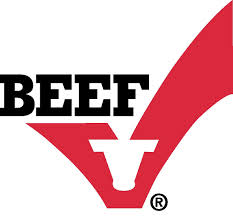Stockgrowers encourages industry to consider stakes of checkoff reform
 In response to beef industry stakeholder concerns about the structure and proposed reform of the national beef checkoff program, Montana Stockgrowers Association (MSGA) encourages cattle producers to consider critically what is at stake for the industry research, education and promotion efforts.
In response to beef industry stakeholder concerns about the structure and proposed reform of the national beef checkoff program, Montana Stockgrowers Association (MSGA) encourages cattle producers to consider critically what is at stake for the industry research, education and promotion efforts.
On September 30th, Secretary of Agriculture Tom Vilsack announced intentions to implement a new supplemental beef checkoff program by January 2016. The new program would operate under the 1996 Commodity Promotion, Research and Information Act, separate from our current 1985 Beef Promotion and Research Act. A referendum on the new proposal would be held within three years of implementation. The proposal will be published by the end of 2014 or early 2015 in the Federal Register.
This approach is an alternative to the program enhancements being negotiated by the Beef Checkoff Enhancement Working Group*, which involved membership organizations representing industry stakeholders. In August, the group reviewed a draft memorandum of understanding that would serve as the negotiated enhancement. Soon after, the National Farmers Union withdrew from the effort, citing “the process is unlikely to result in necessary reform. It is time for the USDA to react to beef producers’ demand to reform this system.”
This outcome is unfortunate, especially during this time of strong cattle market fundamentals and an industry outlook that will require strategic investment in promotion and research. MSGA’s response and approach to this is two-fold.
First, MSGA sent a letter to Secretary Vilsack along with forty-four state cattlemen’s associations outlining our structural concerns between the 1996 Act and the 1985 Act. Two specific points are focused on governance and limited coordination between qualified state beef councils and their federation.
Secondly, despite our opposition, Secretary Vilsack has given no indication that he will withdraw the proposed rule. Therefore, MSGA will be working within the rulemaking process to offer design recommendations and comments. Our focus will be to influence decisions that yield the best outcome even with the working group’s inability to find a compromised solution.
The scope of MSGA’s input to the proposed rule will include the following:
- MSGA supports an increase in the beef checkoff assessment, along with a petition and referendum model. Emphasis should be made on structuring the most efficient and effective process to increasing the checkoff.
- MSGA also supports greater flexibility and competitive contract proposals by removing any reference to the charter date of an established national, non-profit, beef industry organization. MSGA will recommend that return on investment should be a key evaluation metric.
- A balanced portion of checkoff revenues paid by U.S. producers should be allocated to promote U.S. beef within the context of federal country of origin regulations.
- MSGA recognizes the importance of government oversight, but we do not want complete government control. It is critical to allow stakeholders who pay in to have decision-making authority.
Undoubtedly, USDA will likely have an effect on our industry’s investment program and its economic value. Our approach is simple. Focus resources on the ability to anticipate and affect the formation, enforcement and modification of the proposal and ensure that it has a positive outcome for the broader beef industry.
Feel free to contact the Montana Stockgrowers Association to provide your comments or input on Beef Checkoff reform by calling the Helena office, (406) 442-3420.
–Errol Rice, Executive Vice President, Montana Stockgrowers Association


